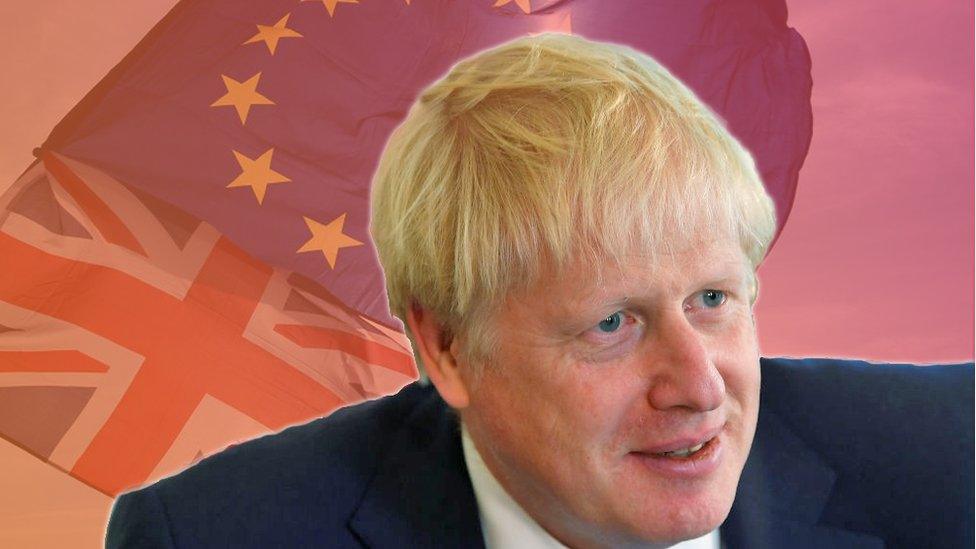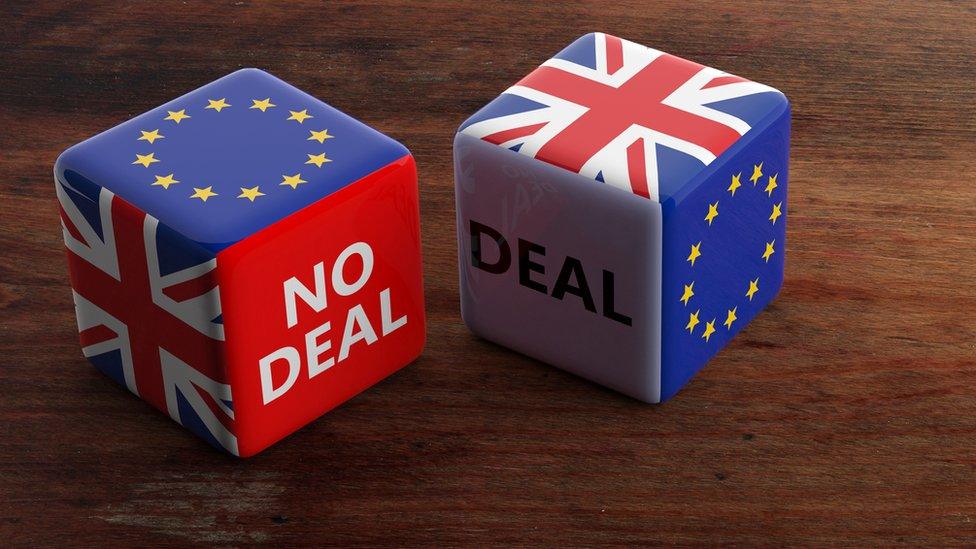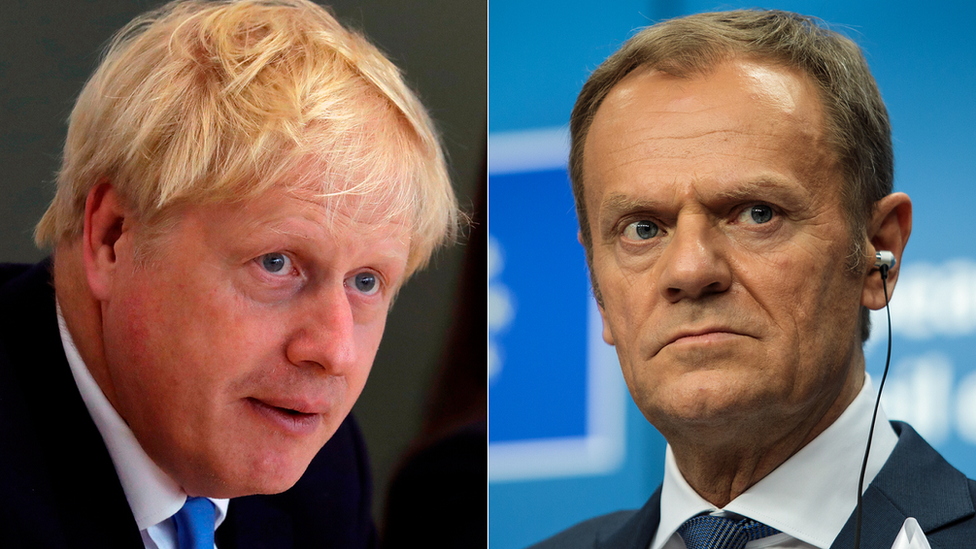Brexit: What's Boris Johnson trying to agree about the UK's exit from the European Union?
- Published
- comments

Boris Johnson is making his first trip abroad as Prime Minister this week and he will be telling EU leaders he wants a new Brexit deal.
The prime minister is travelling to Berlin to meet German Chancellor Angela Merkel on Wednesday, then going to Paris to meet French President Emmanuel Macron on Thursday before attending the G7 summit, a meeting between some of the most powerful countries in the world.
Before he took over as prime minister from Theresa May he made it clear that making Brexit happen on 31 October was a top aim, "come what may".
What does Boris Johnson want?

Boris Johnson says he would be prepared to leave without a deal as a last resort
Boris Johnson says he is prepared to leave the UK without a deal but ideally wants there to be a new agreement to replace Theresa May's withdrawal agreement which was defeated three times by MPs.
The prime minister has said a new Brexit deal must include getting rid of the Irish border backstop. Senior European politicians have already rejected that unless the UK comes up with what they call "realistic alternatives".
In a letter to European Council President Donald Tusk, the PM said the backstop - which aims to avoid a hard border between the Republic of Ireland and Northern Ireland- risked undermining the Northern Irish peace process. He called it "unviable" and "anti-democratic".
Read Newsround's guide on the Irish border backstop here.
Mr Johnson has also said the UK will be leaving the European Union (EU) on 31 October "no ifs or buts".
This means that the UK could leave without a deal in place, this is called a 'no-deal Brexit'.
What do European leaders say?
The EU has said it will not renegotiate the terms of the withdrawal agreement it struck with former Prime Minister Theresa May.

Boris Johnson has written to Donald Tusk (right) to set out his demands for a Brexit deal
It has also said the Irish backstop cannot be removed from the withdrawal agreement.
If the UK leaves with no deal and asks for a free trade agreement, the EU has said it will not begin negotiations until the issue of the Irish border is settled.
